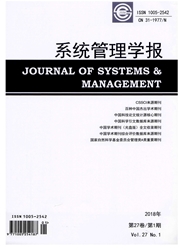

 中文摘要:
中文摘要:
在西方学者的研究基础上,基于自我建构视角,运用实验的研究方法,探究社会规范的相关理论在中国情境下的适用性,得出了与西方研究相悖的结论。研究发现,社会规范引导亲社会行为的效用受到自我构建类型的调节,对于互依型自我构建的个体而言,描述性规范比意见性规范和一般环保标语更有效用。而在以互依型自我构建为主的中国情境下,更要关注描述性规范在宣传和推广环境保护、社会公益等亲社会行为中的重要作用。该研究为社会规范理论的本土化研究作了有益探索,其成果可以运用到环保、戒烟、献血以及抵制药物滥用等具有重大意义的社会目标方面,为社会和国家的健康和谐发展提供借鉴和启示。
 英文摘要:
英文摘要:
Across two experimental studies,this research examines the effects of social norms(descriptive,injunctive,and environmental)on the intent to engage in pro-social behavior.The results suggest that the impact of descriptive norm is stronger than that of injunctive and environmental norms in China.Furthermore,the relationship between social norms and the intent to engage in pro-social behavior is moderated by individuals' self-construal type(independent vs.interdependent).For individuals with interdependent self-construal,norms using descriptive(vs.injunctive and environmental)appeals result in higher intent to engage in pro-social behavior.The results enrich the social norm literature by showing that the impact of descriptive norm is stronger than other types in China context.The results can be applied in many social areas such as environmental protection,smoking cessation,blood donation and drug abuse,and accordingly the results have profound influence on social welfare of the whole society.
 同期刊论文项目
同期刊论文项目
 同项目期刊论文
同项目期刊论文
 期刊信息
期刊信息
